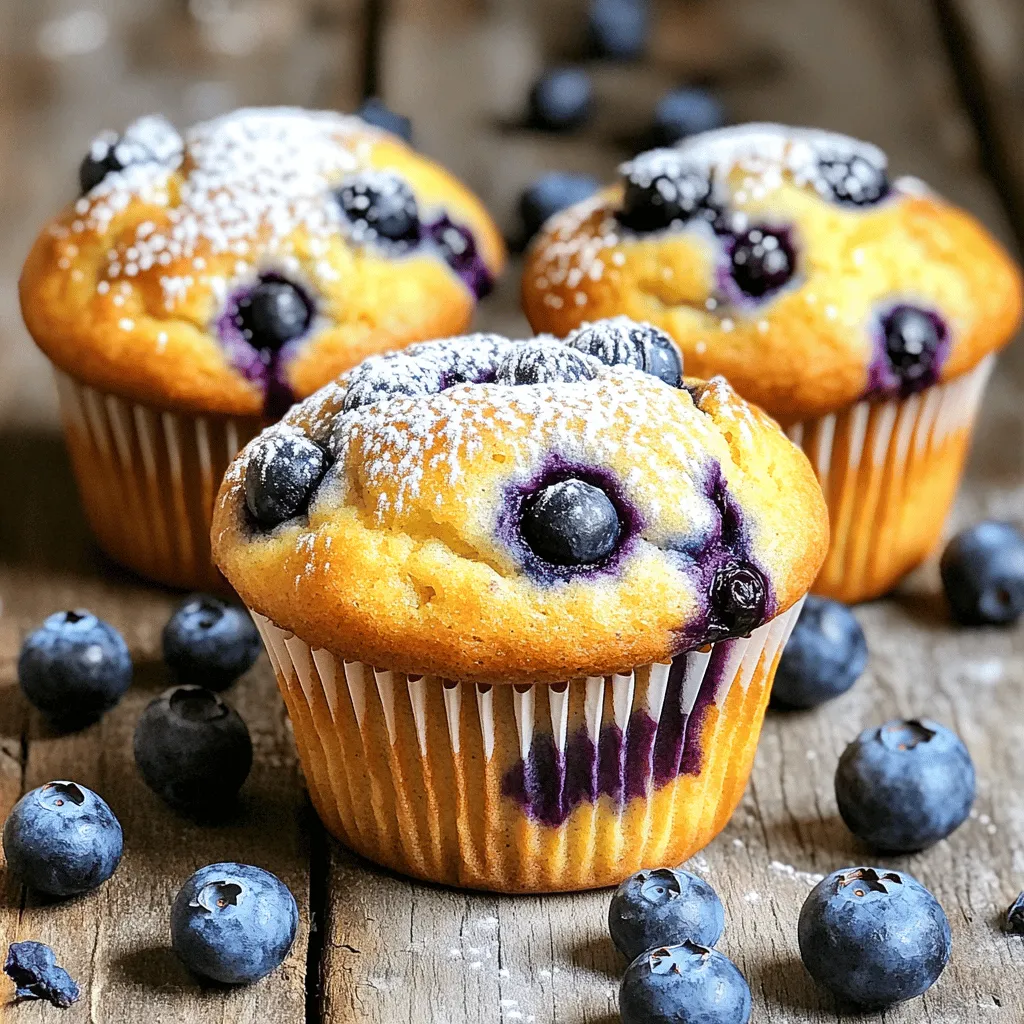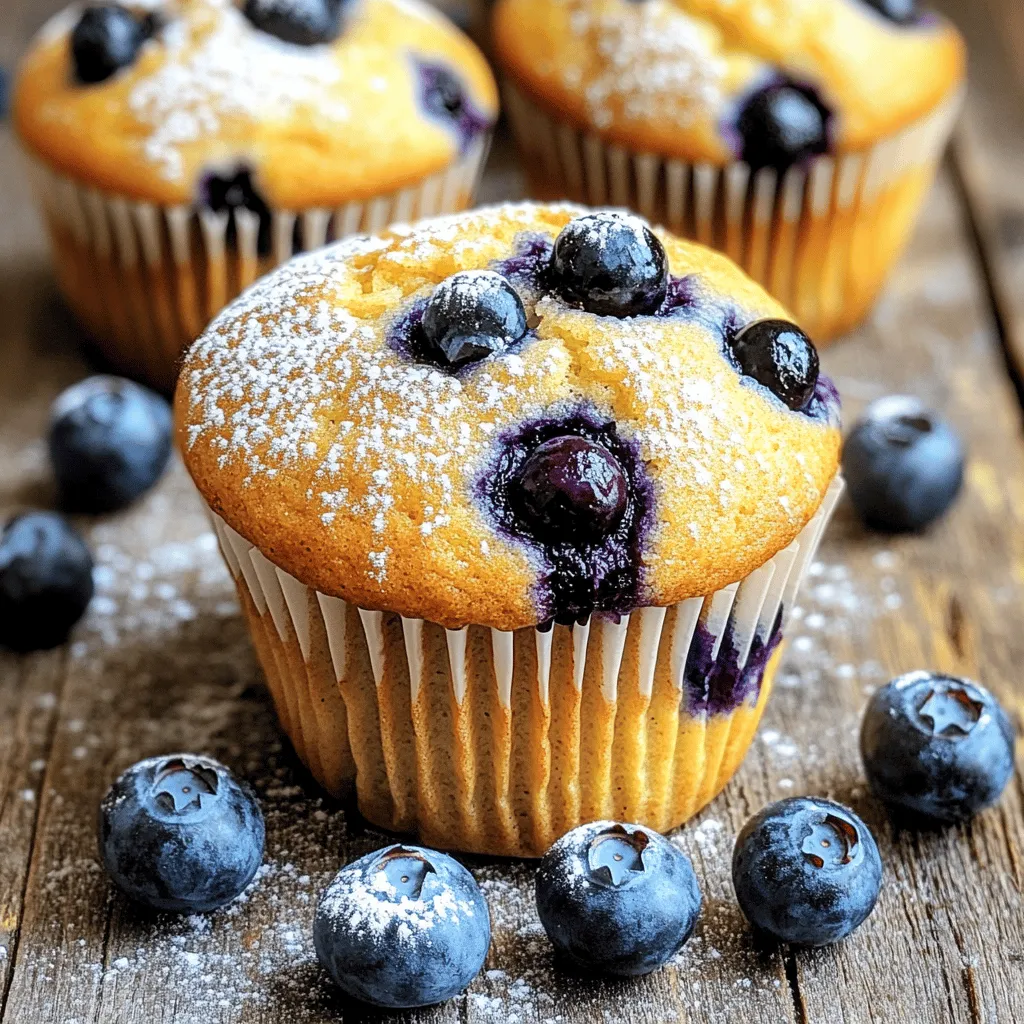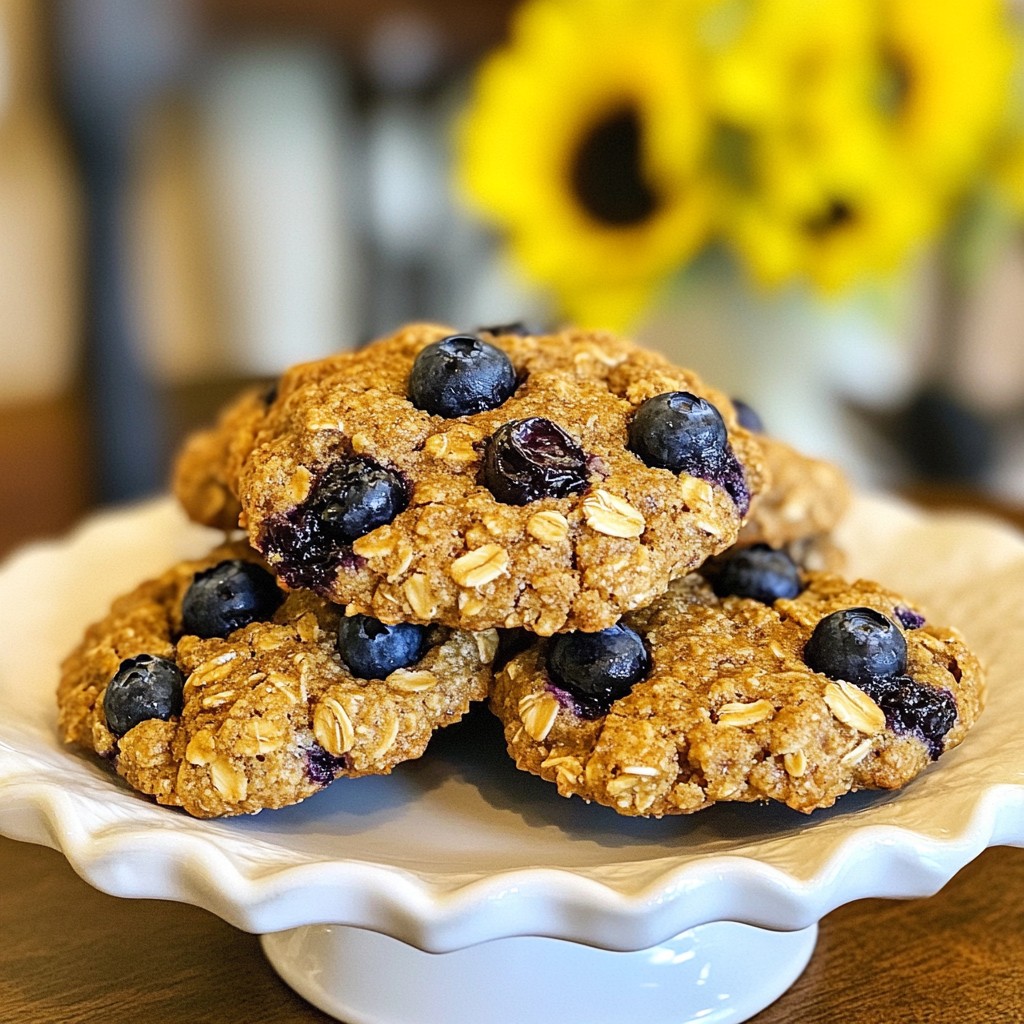Are you ready for a tasty treat that fits your gluten-free diet? These gluten-free blueberry muffins are not only flavorful but also easy to make! In this post, I’ll guide you through the simple ingredients, step-by-step instructions, and expert tips to ensure your muffins come out perfect every time. Let’s dive into the world of baking and make the best blueberry muffins you’ve ever had!
Ingredients
List of Ingredients
To make gluten-free blueberry muffins, you need the following ingredients:
– 2 cups almond flour
– 1/2 cup coconut flour
– 1/2 cup granulated sugar (or coconut sugar)
– 2 teaspoons baking powder
– 1/2 teaspoon baking soda
– 1/4 teaspoon salt
– 3 large eggs
– 1/2 cup unsweetened applesauce
– 1/4 cup almond milk
– 1 teaspoon pure vanilla extract
– 1 ½ cups fresh blueberries
– Zest of 1 lemon (optional)
Health Benefits of Ingredients
These ingredients not only taste great but also come with health perks. Almond flour is high in protein and healthy fats. It helps keep you full longer. Coconut flour adds fiber, which is good for digestion. Eggs provide protein and essential nutrients like vitamin D. Applesauce is a great substitute for oil. It keeps the muffins moist and adds natural sweetness. Blueberries are rich in antioxidants and good for heart health. This combination makes these muffins a tasty and healthy treat.
Gluten-Free Ingredient Substitutions
If you need to change any ingredients, here are some options:
– Almond flour: You can use sunflower seed flour for nut-free muffins.
– Coconut flour: Try oat flour if you want a different taste.
– Sugar: Use maple syrup or honey for a natural sweetener.
– Eggs: Flaxseed meal mixed with water can replace eggs for a vegan option.
– Dairy alternatives: Use soy milk or oat milk in place of almond milk.Enjoy baking these delicious gluten-free blueberry muffins!
Step-by-Step Instructions
Detailed Baking Instructions
To start, preheat your oven to 350°F (175°C). Grab a muffin tin and line it with paper liners or grease it with non-stick spray. This will help your muffins pop out easily.
Next, take a large bowl. Add the almond flour, coconut flour, granulated sugar, baking powder, baking soda, and salt. Whisk these dry ingredients until they are mixed well and clump-free.
In another bowl, crack the eggs and whisk them with the applesauce, almond milk, vanilla extract, and lemon zest (if you’re using it). Mix until smooth.
Pour the wet mixture into the dry ingredients. Stir gently until just combined. Don’t overmix. This keeps your muffins light and fluffy.
Now, fold in the blueberries with a spatula. Make sure they are evenly spread but keep them whole for the best flavor.
Scoop the batter into the muffin cups, filling each about two-thirds full. This allows space for rising. Bake in the preheated oven for 18-22 minutes.
Tips for Mixing Batter
Mixing is crucial for great muffins. First, always whisk the dry ingredients well. This helps to spread the baking powder and soda evenly.
When combining wet and dry ingredients, use a gentle hand. Overmixing can make your muffins dense. It’s okay if a few lumps remain.
When adding blueberries, fold them in carefully. This keeps them intact and juicy. If you use frozen blueberries, you can skip thawing them. Just add them straight in!
Signs Muffins Are Done
To tell if your muffins are ready, use a toothpick. Insert it into the center of one muffin. If it comes out clean, they are done.
Another sign is the golden brown color on top. The muffins should look puffy and firm.
Once they are baked, let them cool in the pan for about 5 minutes. Then, move them to a wire rack. This helps them cool evenly and keeps the bottoms from getting soggy. Enjoy these muffins fresh from the oven or save them for later!
Tips & Tricks
How to Achieve Perfect Muffins
To make the best gluten-free blueberry muffins, follow a few key tips. First, measure your flour accurately. Use a scale if possible, as this gives you the most precision. Next, remember to whisk your dry ingredients well. This step helps mix the baking powder and baking soda evenly. When mixing wet and dry ingredients, do not overmix. Just stir until combined to keep your muffins light. Finally, bake them in a preheated oven at the right temperature. This step ensures even cooking and a good rise.
Common Baking Mistakes to Avoid
There are several common mistakes to watch for. One mistake is using too much flour. This can make the muffins dense. Another is skipping the eggs, as they help bind the ingredients together. Not letting batter rest can also lead to less fluffy muffins. Lastly, avoid opening the oven door too soon. This can cause the muffins to collapse. Keep these tips in mind for the best results.
Equipment Recommendations
Using the right tools can make a big difference. A good mixing bowl is essential for combining ingredients. A whisk helps mix dry ingredients thoroughly. Use a spatula for folding in blueberries gently. A muffin tin with liners helps with easy removal. An ice cream scoop is perfect for portioning the batter evenly. To check for doneness, a toothpick is a must.

Variations
Flavor Additions
You can add fun flavors to your gluten-free blueberry muffins. Try mixing in chopped nuts like walnuts or pecans for crunch. You can also add spices to change the taste. Cinnamon gives warmth and pairs well with blueberries. Nutmeg adds a sweet touch. Just a pinch can make a big difference. Experiment to find your favorite mix!
Dairy-Free Options
If you want to make these muffins dairy-free, it’s easy! Instead of regular milk, use almond milk or coconut milk. Both options keep the muffins moist. You can also use dairy-free yogurt instead of applesauce. This swap keeps the texture creamy while avoiding dairy. Feel free to try different brands to see what you like best.
Sweetness Adjustments
Not everyone likes the same level of sweetness. If you want a less sweet muffin, cut back on the sugar. You can use just 1/3 cup of sugar and still enjoy a tasty treat. For extra sweetness, add a bit of honey or maple syrup. Just remember to reduce the other liquids slightly if you do. This keeps your muffins from getting too wet. For a fun twist, mix in a little lemon zest for a bright, fresh flavor!
Storage Info
Best Practices for Storing Muffins
To keep your gluten-free blueberry muffins fresh, store them in an airtight container. This helps to maintain their moisture and flavor. Place a paper towel at the bottom of the container to absorb any excess moisture. You can also stack them with parchment paper between layers to prevent sticking. Store the muffins at room temperature for up to three days. For longer storage, consider freezing them.
Freezing and Reheating Instructions
If you want to freeze your muffins, let them cool completely first. Wrap each muffin tightly in plastic wrap, then place them in a freezer-safe bag. You can freeze them for up to three months. To reheat, take a muffin out and let it thaw at room temperature. You can warm it in the microwave for about 15-20 seconds or in a preheated oven at 350°F (175°C) for about 5-7 minutes. This will help restore their soft texture.
Shelf Life of Gluten-Free Muffins
Gluten-free blueberry muffins are best enjoyed fresh, but they can last a bit longer. If stored properly, they stay good for about three days at room temperature. In the freezer, they can last up to three months. Always check for any signs of spoilage, like an off smell or visible mold, before enjoying your muffins.
FAQs
Can I make these muffins vegan?
Yes, you can make these muffins vegan. To do this, you will replace the eggs. Use a flaxseed meal instead. Mix 1 tablespoon of flaxseed meal with 3 tablespoons of water for each egg. Let it sit for 5 minutes until it thickens. This acts as a good binder.
How do I make these muffins fluffier?
To make your muffins fluffier, try a few tricks. First, make sure to sift your dry ingredients. This adds air and helps with texture. Second, beat the eggs until they are frothy. This will add extra lift. Lastly, do not overmix the batter. Mix just until combined for the best rise.
What can I substitute for almond flour?
If you need a substitute for almond flour, try using oat flour. It provides a similar texture and flavor. You can also use a gluten-free all-purpose flour blend. Make sure it has xanthan gum to help bind the mix. This will keep your muffins light and tasty.
You learned about key ingredients for delicious muffins and their health perks. Gluten-free swaps fit right in too. We explored step-by-step baking, mixing tips, and knowing when muffins are ready. I shared tricks to perfect your muffins and common pitfalls to dodge. We covered flavor variations, storage methods, and answered your burning questions.
Now, you can bake muffins with confidence. Happy baking!




